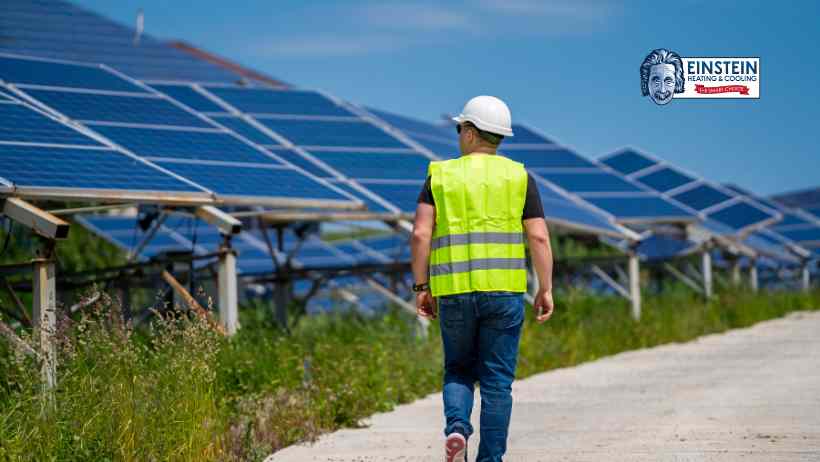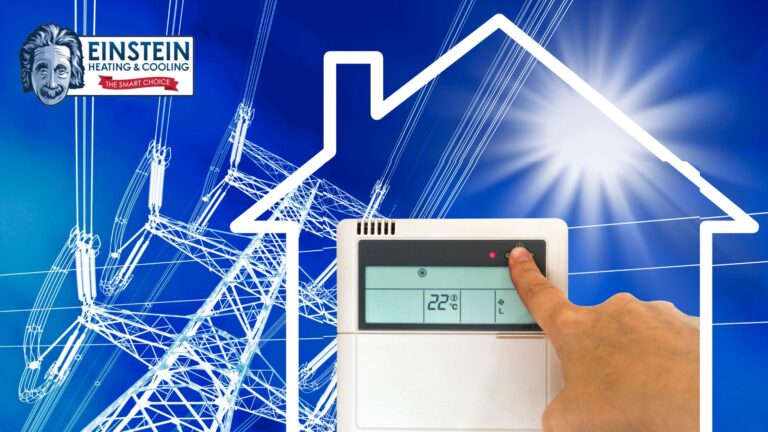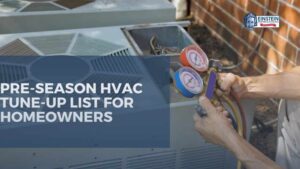Phoenix, known for its scorching desert climate, heavily relies on air conditioning to provide comfort and respite from the relentless heat. However, as concerns about energy consumption and environmental impact continue to grow, the future of air conditioning in Phoenix must embrace innovations and sustainability. In this blog, we will explore the latest advancements and technologies that are shaping the future of air conditioning in Phoenix, focusing on energy efficiency, smart systems, and sustainable practices.
- Energy Efficiency: Reducing Environmental Impact
The future of air conditioning in Phoenix is intertwined with energy efficiency, as it holds the key to reducing the environmental impact caused by increased energy consumption. With the rising demand for air conditioning, it becomes imperative to adopt innovative technologies that prioritize energy efficiency.
One such advancement is the development of high SEER (Seasonal Energy Efficiency Ratio) rating units. These units are designed to consume less energy while still providing optimal cooling. Through the utilization of advanced compressor technology and improved heat exchange mechanisms, these systems maximize efficiency and minimize energy wastage. By upgrading to high SEER rating units, homeowners and businesses can significantly reduce their energy consumption and subsequently decrease greenhouse gas emissions.
Moreover, advancements in insulation and building design are crucial in lessening the burden on air conditioning systems. Proper insulation plays a vital role in maintaining stable indoor temperatures, reducing the need for excessive cooling. By preventing heat transfer between the indoor and outdoor environments, insulation helps to preserve a comfortable indoor climate. Architects and engineers are also exploring passive cooling techniques, such as shading devices and natural ventilation, to minimize reliance on mechanical cooling systems. By strategically incorporating these techniques into building design, energy consumption for air conditioning can be significantly reduced.
The future of air conditioning in Phoenix depends on energy-efficient technologies and practices. The development of high SEER rating units, coupled with advancements in insulation and building design, holds the potential to minimize energy wastage and reduce greenhouse gas emissions. By embracing energy efficiency, Phoenix can strike a balance between comfort and environmental sustainability in its pursuit of a cooler future.
- Smart Air Conditioning: Enhancing Comfort and Efficiency
The future of air conditioning in Phoenix is revolutionized by the introduction of smart systems that utilize artificial intelligence and automation. These systems are designed to optimize both comfort and energy efficiency, creating a more intelligent and responsive cooling experience.
Smart thermostats are at the forefront of this innovation. Equipped with sensors and learning algorithms, they can adapt cooling patterns based on various factors such as occupancy, weather conditions, and user preferences. By continuously monitoring and analyzing data, smart thermostats can intelligently adjust cooling levels to maintain a comfortable environment while minimizing energy wastage. For instance, if a room is unoccupied, the system can automatically adjust the temperature to a more energy-efficient level, avoiding unnecessary cooling.
The integration of Internet of Things (IoT) technology further enhances the capabilities of smart air conditioning systems. Through centralized control and remote access, users can manage their cooling requirements from anywhere using mobile apps or other smart devices. This allows for greater flexibility and convenience while ensuring that energy is not wasted when no one is present. For example, users can remotely turn on the air conditioning system shortly before arriving home, ensuring a comfortable indoor environment upon arrival without the need to keep the system running all day.
Additionally, smart systems provide valuable data on energy consumption. This information allows homeowners and businesses to gain insights into their cooling needs, make informed decisions, and identify opportunities for further energy savings. By analyzing energy usage patterns, users can identify areas where adjustments can be made to optimize efficiency and reduce energy costs.

The integration of smart systems in air conditioning brings significant enhancements to comfort and efficiency in Phoenix. Through the use of sensors, learning algorithms, and IoT technology, these systems can adapt cooling patterns, provide remote access, and offer valuable insights into energy consumption. By embracing smart air conditioning solutions, Phoenix can create a more intelligent and sustainable future for cooling, benefiting both users and the environment.
.
- Sustainable Refrigerants: Reducing Environmental Harm
In the pursuit of a more sustainable future, the air conditioning industry is focusing on adopting environmentally friendly refrigerants that minimize harm to the environment. The phase-out of ozone-depleting substances, such as HCFCs and CFCs, has paved the way for the introduction of alternative refrigerants like HFCs. However, while HFCs do not deplete the ozone layer, they have a high GWP, contributing to global warming.
To address this concern, researchers and industry experts are actively developing new refrigerants with lower GWP, as well as geothermal HVACs. One such class of refrigerants is hydrofluoroolefins (HFOs). HFOs have significantly lower GWP than HFCs and offer improved environmental performance without compromising cooling efficiency. These HFO-based refrigerants are being integrated into the next generation of air conditioning systems, reducing their impact on global warming and aligning with sustainability goals.
Furthermore, natural refrigerants such as CO2 and NH3 are gaining attention as sustainable alternatives. Carbon dioxide, a naturally occurring gas, has a negligible GWP and is being used as a refrigerant in some systems. Ammonia, another natural refrigerant, has zero GWP and is highly efficient. However, it requires specialized handling and is primarily used in commercial and industrial applications.
Transitioning to sustainable refrigerants in Phoenix’s air conditioning systems holds immense potential for reducing the city’s carbon footprint. By adopting these alternatives, Phoenix can contribute to global efforts to mitigate climate change and promote a greener future. Furthermore, using sustainable refrigerants can align with regulations and international agreements focused on reducing greenhouse gas emissions.
The future of air conditioning in Phoenix lies in the adoption of sustainable refrigerants. The development and integration of refrigerants with lower GWP, such as HFOs, as well as the utilization of natural refrigerants like CO2 and NH3, offer significant environmental benefits. By transitioning to sustainable refrigerants, Phoenix can play its part in reducing global warming and creating a more sustainable and eco-friendly approach to air conditioning.
- Solar-Powered Air Conditioning: Harnessing the Sun’s Energy
Phoenix, with its ample sunshine, offers a prime opportunity for leveraging solar power to meet the energy needs of air conditioning systems and their maintenance. Solar-powered air conditioning systems utilize photovoltaic (PV) panels to convert sunlight into electricity, reducing dependence on the traditional power grid. The excess energy generated during the day can be stored in batteries for use during nighttime or cloudy periods.
Advancements in solar cooling technology have further enhanced the feasibility of solar-powered air conditioning. Absorption chillers and desiccant cooling systems are key innovations in this domain. These systems directly utilize solar thermal energy to drive the cooling process, eliminating the need for electricity. Absorption chillers employ a thermally driven process to produce cooling, while desiccant cooling systems use moisture-absorbing materials to remove humidity and lower temperatures. By harnessing solar thermal energy, these systems offer sustainable and environmentally friendly alternatives, reducing both energy costs and the carbon footprint associated with air conditioning.
Solar-powered air conditioning not only benefits the environment but also provides economic advantages. By reducing reliance on the grid and using renewable energy, homeowners and businesses can lower their electricity bills and achieve long-term cost savings. Additionally, government incentives and rebates for solar installations further promote the adoption of solar-powered air conditioning systems.
Moreover, solar-powered air conditioning systems contribute to the overall stability of the electrical grid. By generating electricity on-site, they help alleviate the strain on the grid during peak demand periods, reducing the risk of power outages and enhancing grid resilience.
Harnessing solar power for air conditioning in Arizona is a promising solution that maximizes the city’s abundant sunshine. By using PV panels to generate electricity and adopting innovative solar cooling technologies, such as absorption chillers and desiccant cooling systems, Phoenix can achieve sustainable and cost-effective cooling. Solar-powered air conditioning systems not only reduce dependence on the grid and lower energy costs but also contribute to environmental preservation and grid stability. Embracing solar energy is a crucial step towards a greener and more sustainable future for air conditioning in Phoenix.
Conclusion
The future of air conditioning in Phoenix holds great promise, with innovations and sustainability driving the industry forward. By focusing on energy efficiency, smart systems, sustainable refrigerants, and solar-powered solutions, Phoenix can pave the way for a greener and more comfortable future. The adoption of these technologies will not only reduce the environmental impact but also lead to cost savings and enhanced user experiences. As we move forward, it is essential for homeowners, businesses, and policymakers to embrace these advancements and work together towards a sustainable and energy-efficient cooling future in Phoenix.








